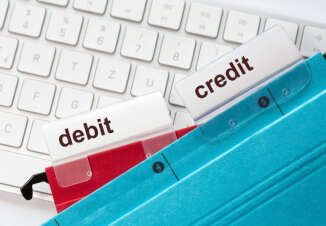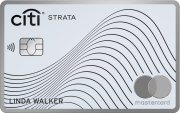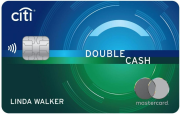The content on this page is accurate as of the posting date; however, some of the offers mentioned may have expired.

Choosing between using a debit or a credit card
They look the same. Same Visa or MasterCard logo, same magnetic stripe on the back, same size. But beyond the physical similarities, debit cards and credit cards have some real differences. Before you swipe with either, you should be aware of the pros and cons of each piece of plastic.
Their respective names indicate the main difference between the two cards. A debit card is a debit against your banking or savings account. Any purchase you make with it will immediately be subtracted from your account. A credit card functions more like a loan. Any purchases are accumulated as credit, and the lump sum is billed to you at the end of the month, subject to the fees or interest rates associated with the particular card.
Beyond the obvious debit/credit definitions, there are significant differences between the two cards. "Debit cards require more discipline in monitoring the available funds in one's budgets," said Tokusan Svenson, an education and counseling professional with American Consumer Credit Counseling. "Credit cards offer 'instant gratification' and can work better for people who don't like to keep careful track of their everyday purchases," Svenson said. But there are other important differences to consider when choosing between debit and credit cards.
Liability - One of the more significant differences is the amount of liability incurred on the part of the consumer. A credit card is subject to strict liability laws. In the case of credit card fraud, the consumer is liable for $50. And if you notice a suspicious charge on your card, the credit card company must investigate the charge within 60 days per a written request by the consumer.
With debit cards, your liability is $50 if you notify the bank within two days of noticing a suspicious charge or if you report your card missing or stolen. After two days, your liability jumps to $500. Should you wait beyond 60 days, you are liable for up to the entire account balance. Banks are now starting to adjust their plans on a voluntary basis to limit the consumer's liability. It is not a requirement of federal law, however, and Svenson doesn't see big changes on the horizon. "I don't see debit card providers changing their policies due to the direct debit from one's account," he said.
Protection - Thanks to the Fair Credit Billing Act, a consumer may withhold payment on poor quality or damaged merchandise purchased with a credit card. In the case of dispute, your credit card company may also act on your behalf and conduct an investigation.
With debit cards, your account is tapped immediately for the purchase, so no payment can be withheld. And if a merchant does decide a refund is in order, they may choose not to refund the payment to your account and instead offer you some sort of in-store credit or a gift certificate.
Pay Now or Pay Later - Overall, the big difference is the "pay now" nature of the debit card, versus the ability to delay your payment with a credit card. If you've run into problems running up too much debt on your credit card, the debit card will keep you on the straight and narrow. You simply can't spend what you don't have.
However, if you're self-disciplined enough to resist that ever-expanding credit limit, you may want to consider credit cards, many of which include a rewards program that pay you cash back or give you discounts on a variety of travel and retail-related purchases. "The key is to pay your balance off in full every month without carrying anything over," Svenson said. "Otherwise, the savings would be negligible at best. The worst case is that one could lose money in interest charges."
So which card should you use? Considering that banks or credit unions will issue you a debit card that doubles as an ATM card, you'll likely have the option of choosing either card. It's your needs and how well you manage your finances that should dictate your plastic preference.
This is a confusing/ambivalent suggestion. We need to leave people with a feeling that we are the experts. Experts are people who know more than us by definition and thus know better. While this is a complicated issue which cannot be adequately treated in 800 words, at least we can suggest something more "practical", more definitive. As you did in the other article, you can suggest to keep the ATM card from the bank for appropriate occasions. Get a credit card for (1) purchases over internet/mail, if you need credit, time to pay off.
When Should You Use It?
Both cards work better for different purchases. Much of this is dependent on you - how quickly you pay off your balance, whether you have a large amount of debt, etc. Here are some overall guidelines:
Purchases for Debit Card
If you use it for everyday purchases, such as groceries, gas, etc., you can avoid paying interest on your card balance. (If you earn reward points, this can work as a disadvantage, however.)
Purchases for Credit Card
Use for items purchased over the Internet or by mail. It will provide you more consumer protection. You could also use your credit card for more expensive items if you need some time to make the payment.







